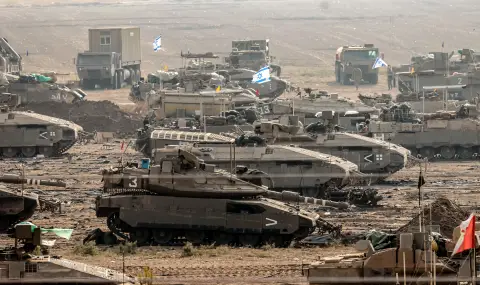Iran fired more than 300 drones and missiles at Israel on Saturday night. The attack was in response to the attack on the Iranian embassy compound in Damascus in early April, which Tehran blamed on Israel. The US and Britain assisted their ally Israel in intercepting missiles fired by Iran. France also took part.
Did Saudi Arabia and Jordan help Israel?
Interestingly, however, support for Israel also came from Jordan's air force. Amman opened its airspace to Israeli and American fighter jets, and also shot down drones that had entered Jordanian airspace. "The Gulf states, including Saudi Arabia, may also have played a role, as their territories are home to Western anti-aircraft systems, surveillance and refueling planes that would be vital to the effort," the British publication noted. Economist". Some Israeli commentators took this as a sign that Arabs and Israelis can work together and that Israel is not completely alone in the Middle East.
"Iran's attack also mobilized new international support for Israel, including from key Arab states that have criticized the Gaza offensive but nonetheless backed Israel's military response to the drone strikes," Julian Barnes confirmed in a statement on Sunday- Dacey, director of the Middle East and North Africa program at the European Foreign Policy Council.
Jordan, for example, is highly critical of Israel's military campaign in Gaza. One in five people in Jordan is of Palestinian descent, including the country's queen, and in the past few weeks there have been increasingly aggressive protests against Israel. At the same time, however, Jordan shares a border with Israel, guards the Al-Aqsa Mosque in Jerusalem, an extremely important site for Muslims, Christians and Jews, and regularly works alongside Israeli authorities, albeit often behind the scenes.
Dangerous balance for Jordan and Saudi Arabia
The Jordanian authorities, who consider the US an important ally, must balance all these interests, their political stability and their own self-defense. Jordan was quick to say that by helping Israel, it was actually defending itself. "Some objects that entered our airspace last night were intercepted because they posed a threat to our people and cities," the Jordanian government said in a statement.
Saudi Arabia is also having to balance its own interests, international alliances and realpolitik with its statements on the war in Gaza.
The wealthy Gulf state was poised to normalize relations with Israel before the October 7 attacks by Hamas that killed nearly 1,200 people in Israel. But after Israel began its military campaign in Gaza, where the Hamas-run Health Ministry says more than 33,000 people have been killed in the past six months, those plans were put on hold. The Saudi government has welcomed calls for a ceasefire in Gaza and criticized Israel's conduct there. However, insiders regularly admit that privately the Saudis are still interested in improving relations with Israel.
The conflict between Iran and the Gulf states has a long history
Whether or not they intervened on Israel's behalf, the Saudis have other reasons for being willing to shoot down Iranian missiles. The Middle East has been divided along religious lines for decades, with the Gulf Arab states and their Sunni majority pitted against Shiite-majority Iran. In principle, the feud can be seen as similar to earlier conflicts in Europe, when the two main denominations of Christianity - Protestants and Catholics - fought each other.
Central Middle Eastern countries such as Iraq, Syria and Lebanon, whose populations are a mixture of Shia and Sunni as well as other religions and ethnicities, are at the center of the conflict as both Iran and the Gulf states trying to strengthen their influence there. This is where the so-called "proxies" of Iran. This group includes Shiite organizations that Iran supports financially, militarily, logistically, and even spiritually to some extent. Houthi rebels in Yemen, militias in Iraq and the political and military group Hezbollah in Lebanon. The Hamas group is also supported by Iran, but is an exception because it is actually Sunni, like most Palestinians.
These groups have fired missiles at Israel from Yemen, Syria and Iraq as part of the Iranian offensive. The US military based in Iraq shot down some of those missiles. It is unclear whether the Saudis have intercepted any coming from Yemen, but they already did late last year.
"For regional players, particularly Saudi Arabia and Jordan, which have reportedly intercepted Iranian drones, the argument will be that they are rightfully defending their sovereign airspace," said Masoud Mostajabi, deputy director of programs for The Middle East at the US-based Atlantic Council. "However, if tonight's attacks develop into a wider Israeli-Iranian conflict, regional actors perceived as defenders of Israel may be targeted and drawn into the regional confrontation (...) Given the motivation for such a conflict is regional leaders are likely to be pushed to act with both sides to end this confrontation," he concluded.
Author: Catherine Scheer
